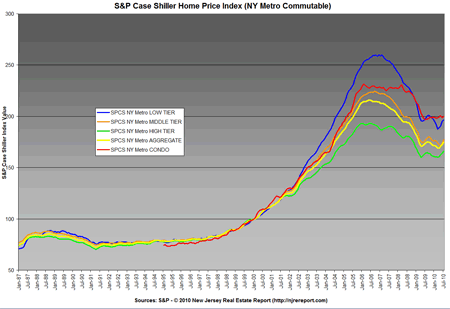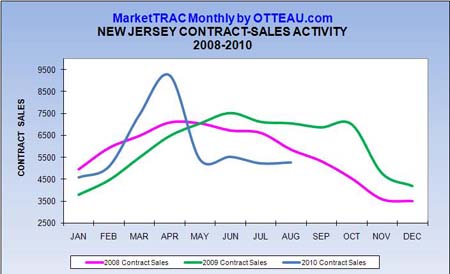From Bloomberg:
Foreclosure Freeze May Sideline U.S. Homebuyers as Legal Worry Cuts Sales
A halt in home foreclosures at the largest U.S. mortgage firms may sideline buyers worried about legal issues, further depressing sales at a time when distressed properties account for almost a quarter of all transactions.
Revelations of mistakes in foreclosure proceedings are causing buyers to have misgivings about property titles, the right of home possession, said Richard DeKaser, chief economist at Woodley Park Research in Washington. Confidence in the legality of repossessions will cut foreclosure sales more than a reduction of available properties because the market already is flooded with repossessed homes, he said.
“The legal problems we’re seeing will hit sales as people worry about the legitimacy of the process,” DeKaser said. “The implications are that there’s been shoddy work.”
…
A reduction in foreclosure sales may result in a short-term boost to the nation’s median home price as buyers shy away from distressed properties, said Thomas Lawler, founder and president of Lawler Housing and Economic Consulting in Leesburg, Virginia.In the second quarter, distressed homes — those that had received a default or auction notice or were seized banks — sold at an average 26 percent discount to properties not in the foreclosure process, according to RealtyTrac.
…
Any short-term boost to prices may be offset when a flood of properties are offered for sale after document problems are sorted out, Lawler said.“Some people are breathing a short-term sigh of relief because the likelihood of distressed sales putting downward pressure on home prices has been put off,” Lawler said. “But no one is breathing a long-term sigh of relief because when these properties eventually come on the market, we’ll have both the confidence problem and the price problem.”
…
“The broader concern is that if banks took shortcuts here, what else did they do?” Sharga said. “Five years into this crisis, there’s no excuse for not having a process in place.”
…
Ownership questions may not arise until a home is under contract and the potential purchaser applies for title insurance, or even decades later as one deed researcher catches errors overlooked by another. A so-called defective title means the person who paid for and moved into a house may not be the legal owner.


